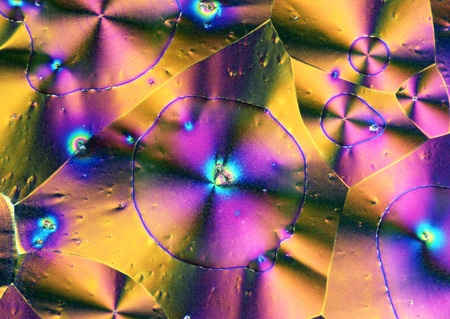Scientists’ understanding of the genetic causes of autism has taken a significant step forward.
For the first time, they have found how a common type of mutation in a single autism-related gene works and may help to trigger the condition.

Cell gene under a microscope: “There’s a revolution that’s taking place in the area of autism genetics right now,” says study author Mark Zylka
The researchers, from the UNC School of Medicine in North Carolina, made the discovery when examining an enzyme known as UBE3A.
Normally the enzyme is well controlled in the body. However, they found that an autism-linked gene mutation disrupts the enzyme’s ‘on/off’ switch so that it is permanently switched on.
The role of enzyme UBE3A in the body is to tag other proteins for destruction. Study author Mark Zylka, associate professor at UNC School of Medicine, explained: “It’s sort of like if you have garbage and you want to get rid of it, you can tag it with a flag for somebody to pick it up and throw it out. That’s essentially what UBE3A does.”
With the enzyme permanently switched on, however, it tags normal proteins without stopping.
To test whether the mutation could contribute to autism, the scientists introduced the gene mutation into the brains of mice. They found that the genetically altered mice developed similar changes in their brains to those seen in individuals with autism.
Mark Zylka told the Yahoo Health website: “Not only was this hyperactivating mutation identified in individuals with autism, when put into a mouse model, it gave a brain pathology that looked like autism.”
The researchers stressed that their discovery relates to only a small part of the puzzle behind the genetic causes of autism. While the study involved a single autism-related gene, around 1,000 genes have now been identified that could relate to the condition. Each one of these genes may play a part in triggering symptoms associated with autism.
With a wealth of possible gene discoveries lying in wait and advances in science bringing down the cost of sequencing human genomes, we can expect more breakthroughs in science’s understanding of the genetic causes of autism. “There’s a revolution that’s taking place in the area of autism genetics right now,” Mark Zylka said.
The UNC School of Medicine study of the UBE3A enzyme was published in the journal Cell. It can be found here.
Published: 8 August 2015















